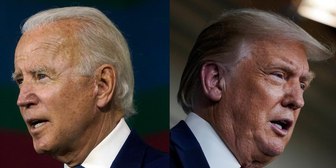Support for direct negotiations with the Iranians has dropped since September, while trust in the Iranian government to follow through on a nuclear deal is very limited.
Americans don’t trust Iran, and the slow-moving Geneva talks over Iran’s nuclear program has not instilled confidence in Iran’s intentions or the President’s management of the issue among the American public. In the latest Economist/YouGov Poll, conducted between rounds of talks, Americans continue to regard Iran as a serious threat to the United States, and three-in-four distrust Iran’s willingness to adhere to any agreement that would affect its ability to create nuclear weapons.
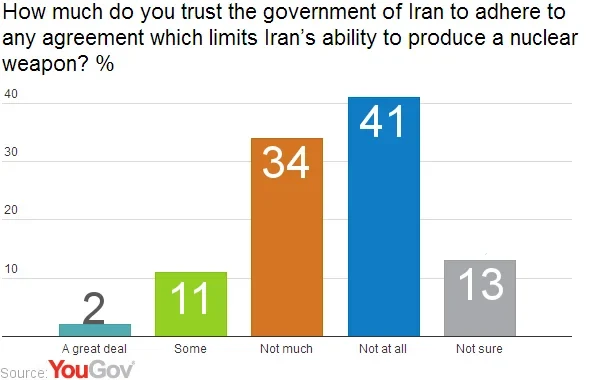
Just 13% have even some confidence that Iran would follow any agreement.
Iran has been viewed as an enemy by many Americans in the Economist/YouGov Poll, as well as in other polls which demonstrate the lasting impact of the seizure of 52 American hostages in Teheran nearly 35 years ago. 65% of people questioned for this poll don’t believe Iran’s insistence that it has no nuclear weapons program, believing that Iran is probably enriching uranium in order to build a nuclear weapon. As for any threat from Iran, only one in three rate that threat as minor or non-existent (just one in ten say Iran is not a threat at all).
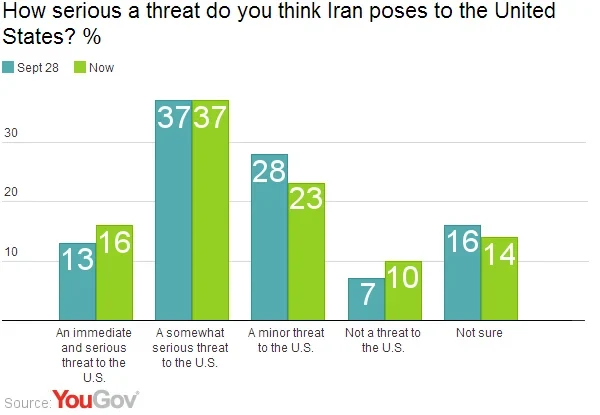
The perception of an Iranian threat is similar to what it was more than a month ago when talks began.
Now Americans would rather have a negotiating strategy that threatens Iran if it does not comply rather than rewards it for any agreement. A third favor the threat of harsher economic sanctions, while one in five would threaten the possibility of military force. Just before the talks began, Americans were far more open to the prospects of using rewards to bring Iran to the negotiating table and work towards an agreement.
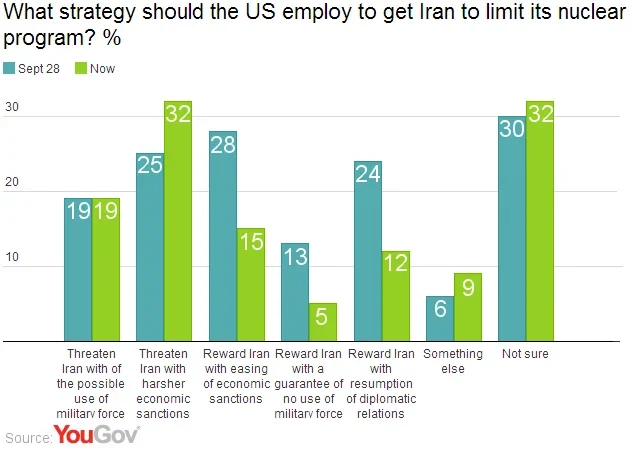
And the President, whose phone conversation with Iranian President Rouhani took place shortly before the September Economist poll was conducted, finds shrinking support for that kind of personal involvement, which the President promised he would pursue during his 2008 presidential campaign. In September, nearly two thirds said they believed the President should personally negotiate with Iranian leaders. This week that percentage has dropped ten points, to 54% today.
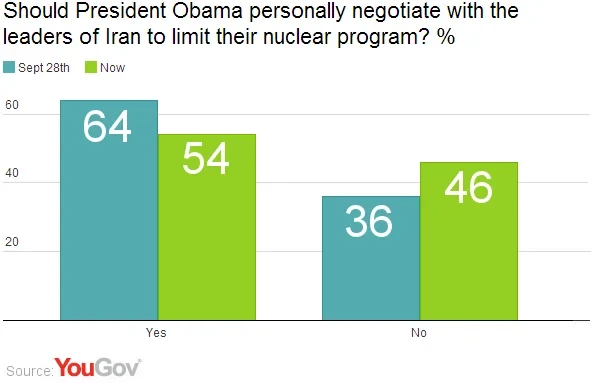
In September, even a majority of Republicans (56%) favored presidential involvement; in this week’s poll, Republicans oppose that, 63% to 37%.
Approval of the President’s handling of the situation is also down, from 38% in late September to 32% today. Disapproval has risen.
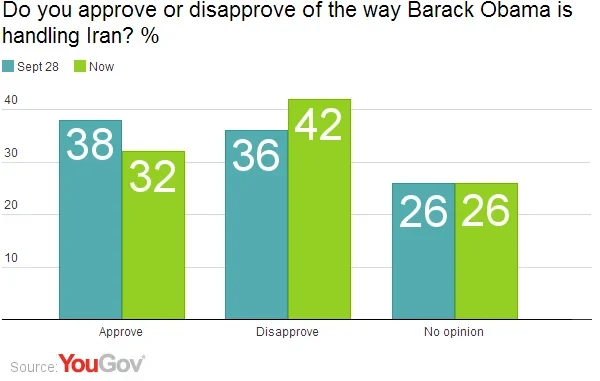
The drop in approval comes entirely from changes in the approval ratings given by Democrats and independents. Only 14% of Republicans -- then and now -- approve. But the approval rating of Democrats when it comes to how the President has handled Iran has dropped seven points, from 64% to 57%, while the percentage of independents who approve of the President’s managing of Iran has dropped ten points, down to 25% today.
Full results can be found here.
Economist/YouGov poll archives can be found here.






